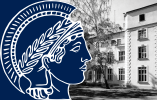Cassidy, David: Examining the Crisis in Quantum Theory: Its Origins, Nature, Extent, and Impact
Examining the Crisis in Quantum Theory: Its Origins, Nature, Extent, and Impact
The quantum was always a controversial and disquieting concept. The introduction of energy quanta, the Bohr atom, and Planck’s constant all stimulated efforts to comprehend their fundamental origins in terms of familiar, “classical” physics. Further developments, such as Sommerfeld’s quantum conditions, Bohr’s correspondence principle, and their applications to such problems as hydrogen, molecular spectra, and the normal Zeeman and Stark effects, rendered the old quantum theory a remarkably successful, if still disquieting, theory.
Beginning around 1922, the disquiet began to turn into distrust and then despair. Within a short period of time a sense of the failure of quantum theory spread across portions of the quantum community, and with it, the perception that, as Born wrote in a paper celebrating the tenth anniversary of the Bohr atom, “Not only new assumptions in the usual sense of physical hypotheses will be necessary, but also the entire system of concepts of physics must be rebuilt from the ground up.” Similar sentiments were expressed in that period by many others, including Lorentz, Van Vleck, Bohr, Pauli, Heisenberg, and Landé. As a result, there were numerous attempts at the time to obtain hints for what Born was now calling a new “quantum mechanics” through the introduction of such ad hoc hypotheses as a “mystery force,” revised quantum principles, discontinuous equations, unmechanischer Zwang, and incomprehensible Zweideutigkeit.
In one of the earliest histories of quantum mechanics, Heisenberg referred to this period in 1929 as “the crisis in quantum theory.” Did a crisis really exist? If so, what difficulties and problems induced it so suddenly around 1922? How widespread was it? What attempts were made to resolve it? And in what ways was the reception of quantum mechanics conditioned by this period? In broader historiographic terms, in what ways might this period be compared with Thomas Kuhn’s notions of crisis, extraordinary science, and paradigm shift? In addition, is there any evidence of a relationship, as Paul Forman has suggested, between the sense of crisis within the quantum-physics community and the broader intellectual milieu of Weimar culture?
The proposed talk will be based upon a research paper in which I am attempting to examine these and other questions through careful analyses of the primary sources, both published and unpublished, along with reference to suitable secondary literature on the history of this period.






 Cassidy (Presentation)
Cassidy (Presentation)